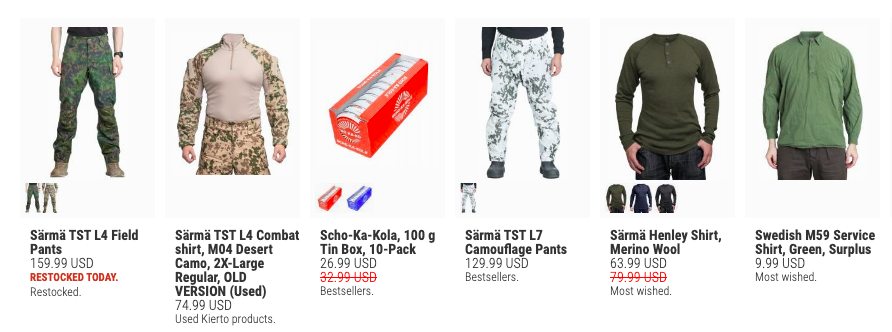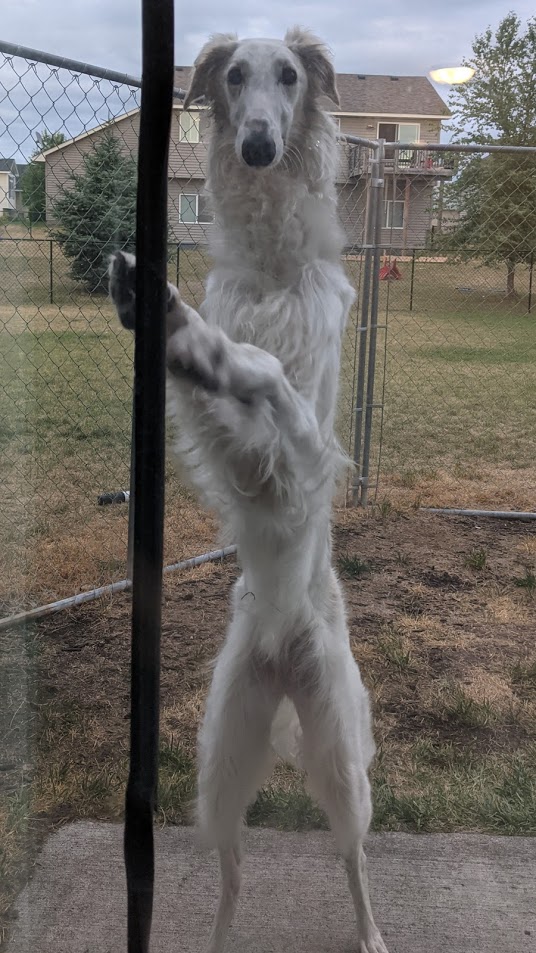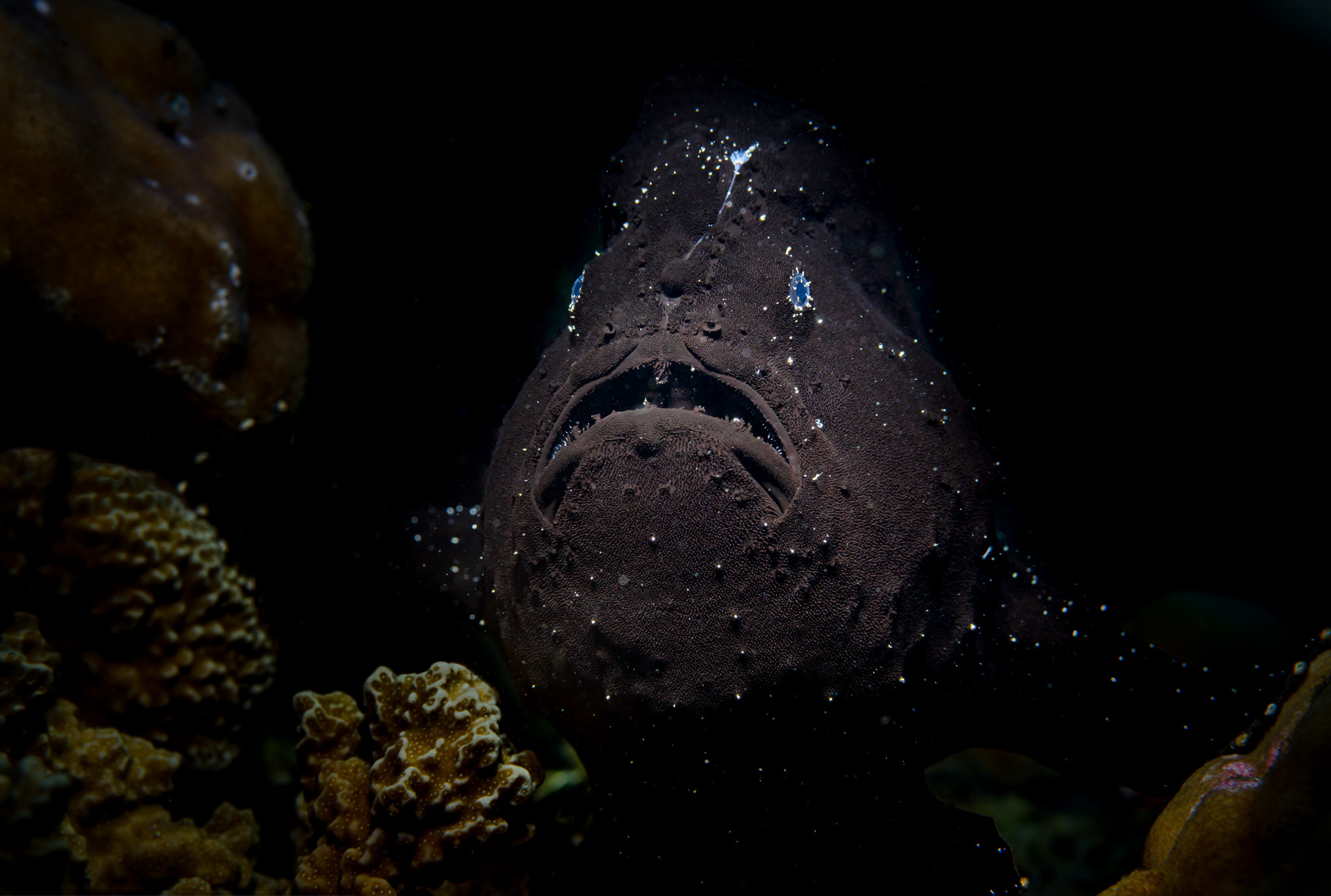The article makes a lot of mistakes, because I don’t think that the author actually cares about textiles at all.
Cotton is not comparable to wool at all. Full stop. If you wear wool for technical reasons–like, because you want to stay warm–then you need to know that cotton will kill you, as will all cellulose fibers that aren’t treated to be hydrophobic. Petroleum-based fibers like polyesters, nylons, etc., do not wet the same way that cotton does, but also don’t keep you warm in the same way that wool will. Wool is the gold-standard for cold-weather outdoor apparel.
Tencel–which is a type of rayon–is considerably weaker than cotton when it gets wet. The process for making rayon is usually–but not always–a very polluting open-loop system. There are closed-loop systems, but they weren’t in common use as of 2010.
Leather is irreplaceable as a protective material. Synthetic leathers lack the abrasion resistance and/or heat resistance of leather. Compare a pair of high-quality leather boots to the highest quality non-leather boots; leather will last decades longer. So you can’t compare on a per unit basis; you need to compare them based on practical lifetime costs. In regards to certain protective apparel–such as motorcycle gear–textile jackets simply do not provide the same level of repeatable protection as leather. If you ride your bike on a track, you will be required to wear leather.
My understanding was that there are three types of rayon. Or have I been had by Big Cellulose?
- Viscose is the one that gets weaker when wet, and uses aggressive chemicals
- Modal gets stronger when wet, but also aggressive chemicals
- Tencel (brand name for lyocell) specifically refers to that closed loop process with less harsh solvents, and also gets stronger when wet
If something just says “Rayon” you can probably assume it’s viscose. Tencel sellers want you to know it’s Tencel.
Regardless, none of the above are good for warmth, so bad replacement for wool no matter which process they use. I do love my Tencel bedsheets though.
The fake leather thing is real. It’s why you can reuse a leather jacket after a motorcycle crash, but not a textile one. Leather also slides better, and sliding gently to a stop after a motorcycle crash can really save you.
In what way is cotton killing people?
Wet cotton will freeze someone to death, wet wool will still keep you warm.
Can’t you / shouldn’t you be wearing a rain coat or outer shell if you think you might get wet?
I get there are some situations where its impossible to keep underlayers dry, like if your on a boat or Backcountry camping, but for the majority of people and situations some layers of cotton or synthetic under a shell should be fine.
perspiration. Sweat will sap heat just as fast as water if you’re wearing cotton
If you over exert yourself and sweat cotton underlayers are useless.
Rule #1 of cold weather survival: You sweat, you die.
Wool isn’t going to save you. Taking off layers will. If it’s raining, wool won’t protect you any more than cotton will because neither are water-resistant. Lol.
So sad this needs to be spelled out for ya’ll, but the voting snowball effect has already taken hold.
Now we have like 10+ who legitimately believe wool will save you in a cold, wet environment where cotton wouldn’t.
Laughable.
It’s totally possible that I’m too dumb to understand a scientific paper, but it sure looks like you’re a dumbass.
So… can you quote anything from it that proves your point? Or do you just link to studies and have other people read them for you?
Lol.
Idk able the whole die thing but I know what I’d rather be wearing
Yes, you should.
The idea that wool will “keep you warm when it’s wet and cold” is such a crock of shit I’m surprised it’s getting upvoted like it does.
Wool will keep you warmer than cotton when it’s wet and cold. As usual, shades of grey get lost in the discussion.
“Warmer than cotton” is not the same as “warm” lol. That’s what I’m trying to get through the people who think that if it’s cold and wet enough cotton can’t protect you when wool can.
That’s just malarkey.
Bullshit, 100%.
If it’s cold and wet enough that you’re going to freeze wearing cotton, you will also freeze wearing wool.
Wool doesn’t repel water. Water passes right through it onto, guess what, you.
It’s ok to not know something. You don’t have to share an opinion that has no basis.
If you’ve ever done multi-day outside activities in the cold, you learn really quick to not wear cotton socks or under layers. Your sweat is what makes you cold because cotton will no longer provide a warm layer. Wool still has air pockets and will keep you warmer and may save your life or limbs.
Are you going to be comfortable in wet wool? No, but you have a better chance of surviving and not getting frostbite.
If it’s cold and wet enough that you’re going to freeze wearing cotton, you will also freeze wearing wool.
Wool doesn’t repel water. Water passes right through it onto, guess what, you.
You don’t have to share an opinion that has no basis.
Identify the opinion or admit you don’t know what an opinion is.
These are the people who think wool will keep you from freezing in the wet and cold while cotton will not.
All I can say is, lol. Make your own decisions and don’t let strangers on the internet put your life at risk.
I’m not going to argue with them anymore because I’ve come across their type before and no matter what, they will believe contrarian bullshit and fight tooth and nail to defend it.
Pot meet kettle
Ahh, gotta block you too. Lol.
Weird watching you people reply to all my comments like that.
Bring the science, jackass
Do you have wool? Place it over a cup and then pour water over it.
See what happens.
If it’s cold and wet enough that you’re going to freeze wearing cotton, you will also freeze wearing wool.
The entire population in the Nordics had an inexplicable tick when you wrote that. Maybe not act all confident about a topic you clearly have no knowledge of?
Wool keeps you warm even when it becomes wet, facts don’t care about your feelings.
Bro, have you see how wool reacts with water?
No way wool is keeping you warm in the rain without something water-resistant over it.
Wool most certainly does keep you warm when it is wet. Sheep dont have a water resistant layer and they live outside. On the other hand cotton will literally wick the warmth away from you when it is wet.
Can someone please tell me exactly what I’m supposed to be wearing?
Adopt actual sheep, and just strap them to your body for warmth.
Simplest answer: cotton. It’s cheap and good enough for most uses. High-grade cotton like Supima is extra comfortable and not much more expensive.
It’s not very good for the use of keeping you warm. Unlike wool.
Unfortunately extremely high water usage to grow cotton, and a lot of it is grown in places that need that water for other things (RIP Aral Sea).
Based on the article we should use flax aka linen, which I suppose makes sense. Linen was once a finery due to the excessive effort needed to produce it, but now we have machinery.
Linen actually doesn’t take to large scale mechanization very well. It causes the fibers to break into shorter pieces more often, which makes the final fabric rougher and less sturdy. Machine-woven linen also tends to be more loosely woven, which is again less sturdy.
Machines certainly helped some amount, but cotton got a way bigger boost from industrialization. That’s why cotton is so much cheaper than linen today, especially high quality linen.
deleted by creator
Can’t say anything about buying new clothes, but as the budget’s tightened in my household I’ve been leaning how to mend my clothes. The ones I normally would’ve thrown away due to armpit/toe/crotch holes can be fixed somewhat easily.
One catch is that I use a sewing machine my MIL gave me - so there was some cost somewhere. But I see machines on craigslist going for sub 60 fairly often. The second catch is that I was lucky enough to develop an interest (and spend my free time) learning about how to mend clothes. If people lack free time/interest to learn how to do it, then they end up paying the new-clothes tax.
My wife does the sewing machine work here. I’m inept. But I’m okay with a needle and thread, so I’ve done plenty of my own (ugly) repairs. Some stuff it doesn’t matter on anyway, like fixing the toe in a sock. Easy to do and saves money on socks.
I’ve got a hole in my sock! Darn it!
Reduce, reuse, recycle is the best bet. Most people in privileged areas own much more clothing than they need and dispose of it long before it’s worn out. Used clothing, hand me downs. Recycled plastic fibres (wash in one of those bags that filter out micro plastic). Plant fibres. Hemp is a great alternative to wool.
I’m looking up hemp clothing now. It’s just as expensive as the other option the other person gave me.
Purchasing used clothing, fine, but if your advice is to buy much more expensive clothing than I can afford, I guess I can’t wear the cruelty-free stuff if I need something new. And I’m sure as hell not buying used underwear.
Based on the news today, human skin™️ apparently
If we change the climate enough via global warming we can make it so it’s always hot then we will no longer need clothes!
As little as possible.
There are mulesing free certificates, and some companies go the extra mile.
Varusteleka is pretty open about their wool, but they don’t have the biggest selection.
(varusteleka, I’ve called you out twice on this account, sponsor me lmao)
Are you fucking kidding me?

Do you think most people can buy clothes for that kind of money? I sure as fuck can’t afford a shirt that costs $64 or pants that cost $160.
You’re basically telling me that in order to have cruelty-free wool, I have to be wealthy.
You’re basically telling me that in order to have cruelty-free wool, I have to be wealthy.
Congrats. You found out why there’s animal cruelty in the first place. People need cheaper things -> other things need to be sacrificed to make that happen.
That was my point. People who expect me to go cruelty-free think I can afford to.
Everyone can only do the best they can. Anyone who expects everyone to have zero impact is an idiot. Even a salad involved death and cruelty somewhere (animals caught in farm equipment, underpaid immigrant farmers who get abandoned if injured, etc).
So really, all you can do in your life if you care about these things is minimize your impact as much as you can based on what you know.
Similar to people who value giving to charity. Do they give all of their spare money to charity? No and no one should expect them to. Just giving anything to charity regularly has a positive impact and the whole “you’re not doing enough” does much more damage than good.
Reminds me of vegetarians/vegans. I’m not really either, but I don’t eat meat. And I’m just happy when I hear people say they want to eat less meat. Whereas most people who are against meat are only happy if someone else is also against it completely.
A better approach is probably to focus on clothes that last, and keep them longer. Of course those are also more expensive but it should even out over the long run
You could afford to, if companies were forced to go cruelty free. Clothing manufacturing is currently one of the most profitable industries, outpacing energy, fossil fuels, and technology industries while producing more new billionaires.
Do you really think that if they were forced to stop abusing animals, those companies would close shop and stop trying to sell textiles? That they would suddenly try to charge absurd prices for the same clothing you buy now?
Prices aren’t set by costs, they are set by what the market will beat. Profits are the difference between costs and what the market will bear. Clothing companies charge exactly as much as they can to generate the sales volume they want, and nothing less. They want to sell you cheap clothes.
This applies to every industry. Nestle would find a way to sell chocolate even if they were forced to stop using child slave labor.
Okay, and? What do you want us to do about it? Those companies are never willingly going to become cruelty free, and the government will never force them to while the
bribery, I mean, lobbying continues.The only way these companies will go cruelty free is if people totally stop buying non-cruelty free products, which again won’t happen because most people can’t afford cruelty free products.
Got it. People on this site are
stupididealistic as hell, so it’s probably good that I spelled out why these things are expensive. I wouldn’t be surprised if some folks thought animal cruelty exists in these industries because people are mean.
That is correct.
Ethics come at a premium. Ethics are a luxury good.
But that was my point. I can’t afford luxury goods. Most people can’t. So we have no choice in wearing clothes made with cruelty.
I agree with you wholeheartedly.
I buy very few clothes, so I save up to spend more on ones I think will last longer.
It’s very burdensome when something doesn’t last long enough to reach that price-equilibrium point compared to simply purchasing more, cheaper clothing.
I am currently almost out of socks and panties because of this :(
Yes, pretty much. You can’t verify mass produced, fast fashion clothes. If you want something realisticly certifiable you need to look for high quality, low volume products. Or get a personal tailor and shoemaker.
Lotta misinformation in this thread trying to claim that wool doesnt keep you warm when it is wet, and I can say from first hand experience that it most certainly does keep you warm when completely soaked through. Sheep should be shorn humanely and it is possible to do, but corporations and capitalism have no incentive to do it. Here is an indepth article explaining the science behind how wool keeps you warm when wet. And Here is anothet article
Big plastic challenges big wool in the thunderdome. 2 enter but we all lose no matter what choice you make. Just go naked people or are you all part of the big clothes conspiracy?
Kill la Kill was a prophecy?
Sounds like something big synth would say
Yeah Moog!
I love how American journalists decide to demonise an industry by putting the word ‘Big’ in front of it.
Big media doesn’t want you to know this big secret, the big truth is big stupid
Sounds like something Big Lemmy would say…
Big Journalism wants you to believe journalists are subject matter experts. They’re not.
I dont know where it was but someone once described how if you are an expert in an area and read something about it you recognize all the errors but then you move on the other stuff and you kinda tend to take it at face value
It is a pretty good article but I have some nitpicks:
They say both that you cannot decide in a vacuum and fast fashion uses synth materials to make disposable clothing. I think given these two ideas, the carbon usage for one garment of wool vs one garment of nylon should include all the “waste” garments produced as well. Since, when you buy from a company that practices this, the impact is from the whole process, as they are keen to point out. That includes the sweatshop to landfill garments.
Personally I like not wearing a microplastics generator.
I am also curious about hemp clothing.
Hemp clothes are smokin’
Big Wool. Silly
IMO anyone who puts big in front of an industry to describe some collective movement by that industry is a total moron.
At this point, If you aren’t using Big _____ ironically 9/10 times, you’re doing it wrong.
Big oil? understandable. Big toothpaste? No.
Men are just big penis
Thank you
i started Buying expensive,wool, darn tough socks and they last at the moment infinitely longer than my cotton socks (since I have 0 issues after over a year)
I think that is an important aspect To consider, kind of in a same vein I went for a more expensively macbook because I know it will easily last at least 5 years for my work and probably more and even after it will be very useable.
So I am a firm believer that the most important part is focusing on buying things that last when you do buy.
I wouldn’t be so confident on the MacBook part. Those are historically kinda flaky from bullshit that apple could have fixed but didn’t feel like doing. From their keyboards locking up to the case glue melting from the hot laptop exhaust to even the internal display cables slowly pulling themselves lose when you open and close the device because they are too short. All of these issues Apple will “help” you with by wiping your laptop and replacing the entire thing, how wonderful.
True, Apple even stops supporting macbooks software-wise in just 5 years. The new macOS sonoma is only available for macbooks after 2018. While I have a toshiba at home from 2008 running Windows 11 (16 years old, upgraded with more ram and SSD). Macs and longevity can’t be in the same sentence.
Buying macbooks is the stupidest idea ever if you want longevity. Heck they even stop supporting them software-wise in just 5-6 years. I still have an old Toshiba from 2008 that is now running Windows 11 fully upgraded, with more ram and an ssd, and is being used by my parents daily. Tell me any macbook that not only can be improved hardware wise (upgraded) but also be kept fully up to date software-wise in almost 16 years. None. The latest macOS didn’t release to macs before 2018. That’s only 5 years of software support for 3000-4000€ laptop. Sorry but, macbooks have the worse longevity of any other brand. If you want longevity, you just did an immensely stupid purchase, sorry to tell you.
K
Removed by mod
The fuck is a cityot? Cit-yot or city idiot?
Cit-yot seems like an obscure slur for an ethnicity with 1000 members you’d see on 4chan or something
An idiot that comes from a city, its a country bumpkin slur for people that know jack shit about farming but pretend they do
Great comeback
Removed by mod
Wool is one of the most humane animal products on this planet. Without it, humans could not have kept themselves warm as easily and we would not have evolved into the species we are now.













